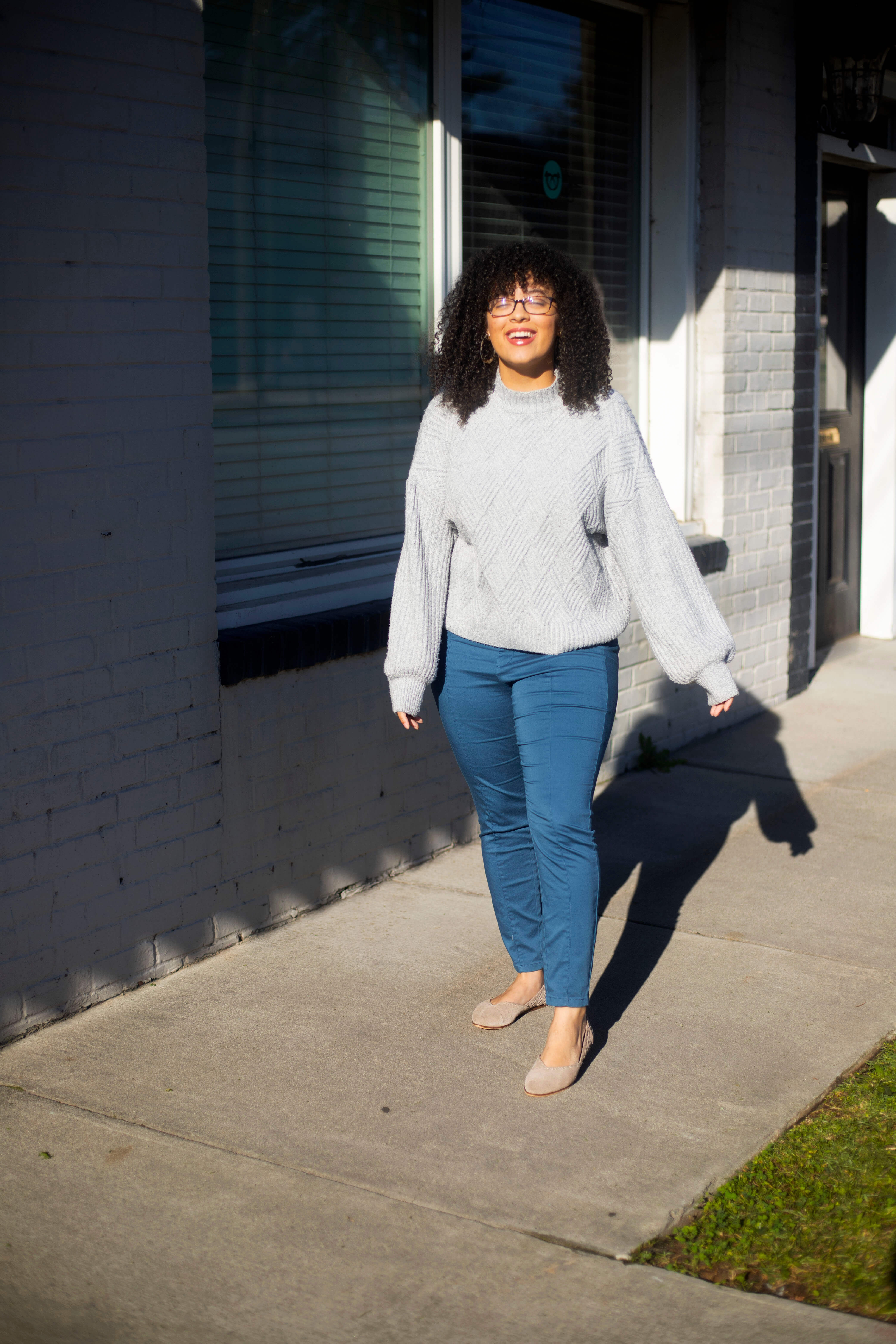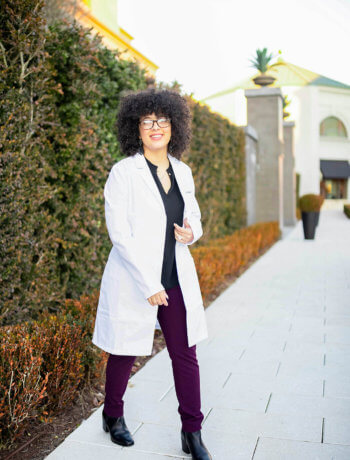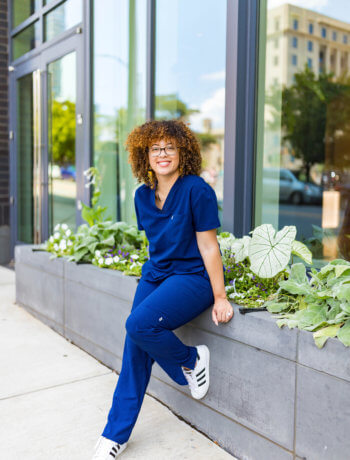The number one question that I get asked about all the time now that I have this blog is how I studied during my time in pharmacy school. Now that I’m 4.5 months away from graduation, I can honestly say that I’ve been through the ringer when it comes to learning how to study effectively in pharmacy school and managing everything that I had on my plate at the time. Pharmacy school is tough, and it takes time to learn what study techniques work the best for you. Just so you don’t have to struggle like I did, I’m sharing in today’s post all of my study techniques and tips to help you make it through pharmacy school.
Tip #1: Take quality notes during class
Once classes get started, you’ll be thanking me later for telling you that you’re going to need to start taking quality notes. There are a ton of ways for you to take notes during class from using a pen and paper to using a touchscreen device. Whatever works best for you, you’ll want to stick with it over the next few years.
The reason why taking your own notes is super important is because you’re more likely to remember the material when you’re actively participating and making connections in the material during the lecture. It’s called active learning and it really does work! For me, I handwrote all of my notes during class, and I also relistened to the lectures to fill-in any gaps that I might’ve missed.
Tip #2: Organize your calendar for the entire semester
At the beginning of every semester, I highly recommend that you read through every class syllabus and put all of your assignments and exams into a calendar. Then add in any personal events, work schedule, and any other extracurricular activities that you know of at the beginning of the semester. This way you can stay organize and stay on track for any assignments. With the constant influx of projects, assignments, and exams in pharmacy school, it’s super easy to fall behind and to let something fall between the cracks.
I personally use the Recollections planner from Michaels, which is the bomb dot com and has loads of space for everything that you could possibly need in pharmacy school. I also really like the Erin Condren Academic planner, which is more customizable option. But if you prefer a digital calendar, then I know some of my fellow pharmacy students used Google Calendar, which syncs up to all of their devices for easy access. Once you have a complete agenda or calendar, you can finally start blocking off time on a daily basis to study and to complete any upcoming projects. This will greatly help you manage your time appropriately and instill a great study routine.
Tip #3: Learn how you study the best
Learning how you, as an individual, learn the best is easily the best advice that I can give you on how to study in pharmacy school. Everyone is so different in the way that our minds work and how our brains learn things. Some people are visual learners while others are auditory. This just means that the way you have to study is going to be different from your friends in pharmacy school to even your loved ones.
I know this isn’t a quick fix, but in the field of healthcare where the literature is always adapting, it’s super important for you to nail down a study routine that works for you. For me personally once I got into pharmacy school, I had to completely change up the way that I studied in undergrad. It was a completely different ballpark (in terms of workload and the material) that I had to try new techniques and re-learn how to study. Now the best way for me to remember anything is re-read the material multiple times and to make my own color-coded study guides.
Tip #4: Utilize different study techniques
As soon as classes start, go ahead and break down the material into easy bite size pieces that are easier to comprehend and to remember. This may include creating your own study guides, summary sheets on a topic, medication charts, or flashcards. When you’re utilizing different study techniques, you don’t always have to reinvent the wheel and create your own 20-page study guide. Utilize what your teachers give you in class and make adjustments to it such as adding notes and comments to the file or color coding each individual section.
If you do have the time to create your own study materials, then make sure to write them in your own voice. You’ll be surprised how much somethings sticks with you when you can relate to the material or make a personal connection to it. During my second year of pharmacy school, I started making my own study guides including diagrams, color coding, and links to videos, and it made a world of a difference in the grades that I received.
Tip #5: Ask questions and get help from your professors
Let me say this one louder for the students in the back: Professors are your friends and they are there to help you! If you’re ever confused about the course material or have any questions about it, ask questions and get advice from your professors. Don’t forget that they are the experts in this area, and they want to see you succeed in their class.
This will not only help you understand the material better but also allow you to show your professor your willingness to learn and how much you care to do so. I won’t lie I’ve probably seen almost all of my teachers in their office hours one year or another because I found that 1-on-1 time with my teachers really made a difference in my grades. I also continue to have a great relationship with all of those teachers to this day!
Tip #6: Prioritize your material based on difficulty level
Remember when I said that pharmacy school throws a ton of work at you all the time? Yeah well, I wasn’t kidding which is why it’s so important to prioritize your studying based on the difficulty level of the class. Everyone is going to be completely different in this area, but some classes will naturally be easier for you and require less work than others. This is where you have to figure out where you need to prioritize your studying based on your strengths and weaknesses.
Basically, you’ll want to spend more time on the classes that are harder for you to understand and spend less time on classes that are easier. Typically after the first exam of the semester, you’ll have a better understanding of what the different exams are like, the type of exam questions, and what your teacher is looking for you to remember for the next exam.
Tip #7: Don’t cram the night before
I feel like this tip is a given, but I know students in pharmacy school who cram the night before for every exam. Please please don’t do this! If you think pulling an all-nighter for a big exam the is a smart decision, please think again. There are a ton of studies out there about the cons of all-nighters, so I won’t go into much details here. But you can read my tips on what to actually do the night before an exam later (hint: it includes lots of sleep!).
Remember that what you’re learning in pharmacy school is actually important for patient care and everything builds upon each other year after year. This means that it may not seem important right now for this exam, but it’ll come back to bite you later on. It’s better to stay organize and to study a little bit every day, instead of cramming a month worth of lectures into one night. Plus you can relieve a lot of stress if you plan ahead and create a solid study schedule.
Tip #8: Work in a pharmacy during your time in pharmacy school
Besides making a little extra money on the side, working in a pharmacy is a vital asset to any pharmacy student who is looking to get better at studying. Are you a little confused by this? Let me explain. When you work in a pharmacy (regardless of its retail or hospital), you’re going to be exposed to patients, drugs, and the healthcare system. Aka everything that you’re going to be learning in school is happening right before your eyes!
I’ve worked in a retail pharmacy for almost 5 years now, and I’m so thankful for the opportunity to work while in pharmacy school. I had the ability to become well-versed in the pharmacy language including drug therapies, drug usages, and mechanism of actions. It became so easy and second nature that by the time that I started pharmacy school, I was already ahead of the game compared to my fellow students. Plus my pharmacists always made it a point to quiz me during the work shift to reinforce the knowledge that I was learning in school.
Take the opportunity right now to get started in the pharmacy field. You’ll be surprised about how much you’ll learn from working part-time somewhere in a pharmacy and how it’ll all connect during your coursework. Plus you’ll meet some pretty cool people that will continue to guide you throughout pharmacy school.
Tip #9: Take time for yourself
Honestly, a good healthy work-life balance is super important if you want to study more effectively. If you study all day and night, you’ll quickly become burned out mentally and physically. Even if you have a ton of work on your hands, you have to give yourself and your brain a break (and this includes sleep!).
Even if you give yourself a 15-minute break while studying, that’s completely fine! Just remember that you don’t have to study every minute of every day to do well in pharmacy school. Take a class, play intramural sports on campus, or whatever it is that makes you happy.
During my P1 year, I was studying every minute of every day, and I quickly burned out in a few months and was miserable in the process. Now that I’m almost done with my P4 year, I finally found a balance that works for me, and I’ve worked two jobs the entire time I’ve been in pharmacy school (which is insanity, I know!).
Tip #10: Test your knowledge
After you’ve done a big study session, take a few minutes to test your knowledge and to see what you actually remember from your study session. I personally recommend taking a blank sheet of paper and write down anything and everything that you remember from a specific topic that you just studied. This little tip will not only reinforce the material that you just learned but also identify where the gaps are. After you’ve written down everything that you could, identify what areas need improvement and go back to the drawing board.
Another great way for you to quiz yourself is by creating your own exam on Quizlet. It’s super easy to do and is another way for you to study the material. When I used to make my own exams, I would create questions based off of my notes and what I think will be important for the exam. I have to admit, sometimes I used to make practice exams that were exactly like the real ones, which as you can imagine was pretty dope.
What are your favorite study techniques that have helped you pass a tough semester?











